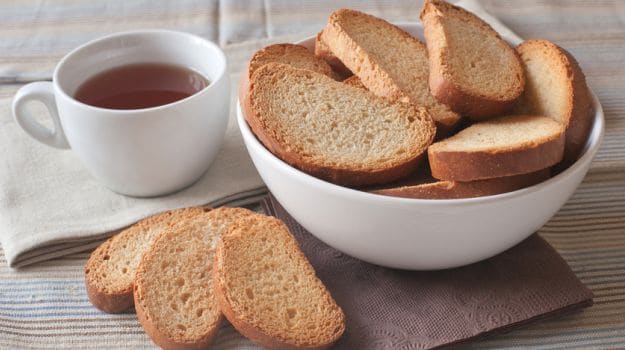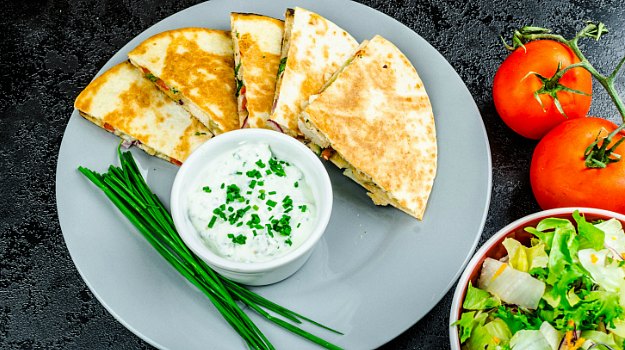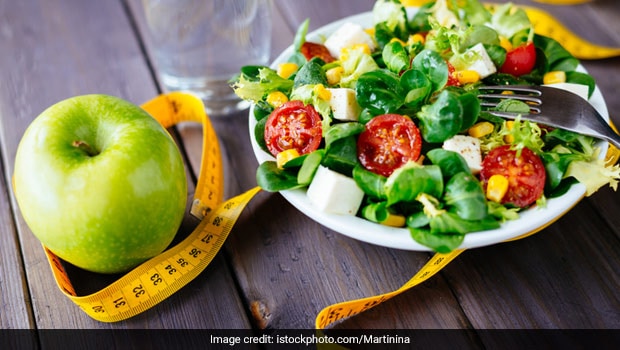Low Fat Diet: Fats are essential to carry out multiple body functions; therefore, ruling them out could be detrimental for your health. Fats are an important macro-nutrient required daily for maintaining the integrity of our physiology. Fats provide energy, protect our vital organs from injury by forming a protective layer around it, they support cell growth and insulate our body. They are essential for the absorption of fat soluble vitamins and production of hormones. Fats can be good too, provided you make the right choice. Consultant nutritionist Rupali Datta talks us through pros and cons of low-fat diet and 'fatty' foods that can actually do wonders for you!
Also Read: Weight Loss: 3 Delicious Low-Fat Chicken Recipes To Add To Your Diet
Watch: Low Fat Diet: All That You Need To Know
Fats come into our diet from visible sources - the added fat, and invisible sources - fat that is already present in the food. But did you know that there are different types of fats too?! You heard it right! Different types of fats include:
- Good Fats: Mono-unsaturated fats, MUFA and polyunsaturated fats PUFA.
- Bad Fats: Saturated fats and Trans fat
Fats are essential but get a bad reputation because too much of a good thing is also not good. High fat diets are known to increase the risk of heart diseases, stroke, diabetes and obesity. Choosing healthy fats in the right quantities will ensure that you get the benefits without increasing the risk of non-communicable diseases. Moreover, if you are on a weight loss diet, you must know that all fats provide the same amount of calories, so be watchful of your intake of fats. In other words, include foods that are good sources of mono-unsaturated fats for weight loss, but practice moderation.
Good fats like mono-unsaturated fats are associated with lowered risk of high cholesterol, heart diseases and stroke. The best sources of mono-unsaturated fats are peanut, rice bran, olive and canola oils. MUFA is also found in almonds, walnuts and seeds. So make sure you include more such fatty foods in your diet, but in moderation. Other types of good fats like poly-unsaturated fats (omega -3) are essential for vital body functions. Fatty fish like salmon and tuna, and walnuts are good sources of poly-unsaturated fats.
Also Read: Low Fat Food: What to Eat and What to Avoid for Weight Loss

Low Fat Diet: MUFA is also found in almonds, walnuts and seeds.
Saturated fats come from butter, ghee and coconut oil; therefore, use them judiciously. A better choice would be low fat dairy and nuts and seeds that along with sat fats also give healthy nutrients. Fish lean meat, chicken breast and eggs are also good sources of saturated fats, which our body needs too. However, Trans fats are a big no. Eating food cooked in oil heated to smoking point repeatedly, non-branded bakery products like mathi, rusk, namkeens are some sources of Trans fats.

Non-branded bakery products like mathi, rusk, namkeens are some sources of Trans fats.
Here Is A List Of Low Fat Foods That Must Add To Your Diet:
All foods contain some amounts of fats naturally. But then there are foods that are low in fats and can be added to your daily diet.
- Vegetables and fruits like spinach, kale, sweet potato, apple, oranges, guava et al.
- Whole grains and legumes have moderate amounts of fats; moreover, they add healthy fibre, antioxidants and minerals to our meals.
- Animal-based (protein-rich) foods contain more fat but by choosing low fat dairy, lean meat, white meat and controlling the portion sizes, one can maintain a healthy low fat diet.
There is no need to go fat free; it is unhealthy. One just need to choose smart! Stay healthy!
Disclaimer: The opinions expressed within this article are the personal opinions of the author. NDTV is not responsible for the accuracy, completeness, suitability, or validity of any information on this article. All information is provided on an as-is basis. The information, facts or opinions appearing in the article do not reflect the views of NDTV and NDTV does not assume any responsibility or liability for the same.
About Rupali DattaRupali Datta is a Clinical Nutritionist and has worked in leading corporate hospitals. She has created and lead teams of professionals to deliver clinical solutions for patients across all medical specialties including critical care. She is a member of the Indian Dietetic Association and Indian Association of Parenteral and Enteral Nutrition.






